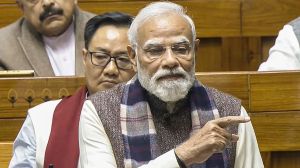Stay updated with the latest - Click here to follow us on Instagram
Afghanistan makes historic return to UN climate talks after Taliban takeover
The Afghan delegation expressed gratitude to Azerbaijan for inviting them to participate as observers, given the lack of official recognition of the Taliban as Afghanistan's government.
 Matiul Haq Khalis, head of the National Environmental Protection Agency from Afghanistan, speaks to members of the media at the COP29 U.N. Climate Summit, Monday, Nov. 11, 2024, in Baku, Azerbaijan. (AP)
Matiul Haq Khalis, head of the National Environmental Protection Agency from Afghanistan, speaks to members of the media at the COP29 U.N. Climate Summit, Monday, Nov. 11, 2024, in Baku, Azerbaijan. (AP)For the first time since the Taliban took power in 2021, an Afghan delegation has joined United Nations climate talks, arriving in Baku, Azerbaijan, on Monday to seek international backing for climate initiatives in their highly climate-vulnerable nation.
Matuil Haq Khalis, head of Afghanistan’s environmental protection agency, told the Associated Press that the country is one of the most severely impacted by climate change and urgently requires global assistance to address extreme weather events like irregular rainfall, prolonged droughts, and flash floods.
“All countries must join hands to tackle climate change,” Khalis said via a translator. Experts recently ranked Afghanistan as the world’s sixth most vulnerable country to climate impacts.
Earlier this year, Afghanistan experienced heavy rains in the north, triggering flash floods that killed over 300 people. According to climate scientists, intense rainfall events have increased by 25% over the past 40 years in Afghanistan. Khalis highlighted that the nation has prepared national climate action plans and will soon update its climate goals.
He also pointed to Afghanistan’s untapped potential for wind and solar energy, emphasising the need for international support to develop these resources. The Afghan delegation expressed gratitude to Azerbaijan for inviting them to participate as observers, given the lack of official recognition of the Taliban as Afghanistan’s government.
Responding to a United Nations report on the heightened vulnerability of women to climate change, Khalis stated that “climate change impacts do not respect boundaries—it affects women, children, men, plants, and animals alike, requiring a united effort”, as reported by AP.
Khalis also mentioned he has requested bilateral discussions with various countries, including the United States, and welcomed any opportunity for dialogue if granted.
“We were absent from the last three conferences,” he said, “but we are pleased to be here now, able to bring the Afghan people’s message to the international community.”
(with inputs from AP)
- 01
- 02
- 03
- 04
- 05































